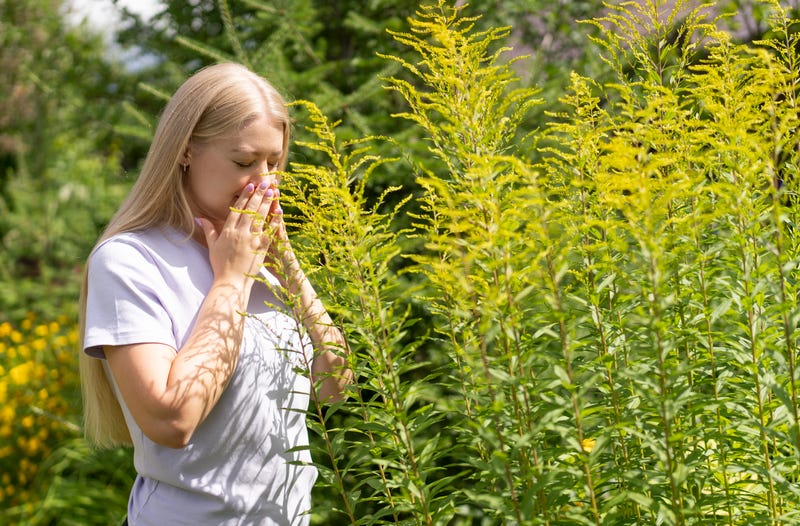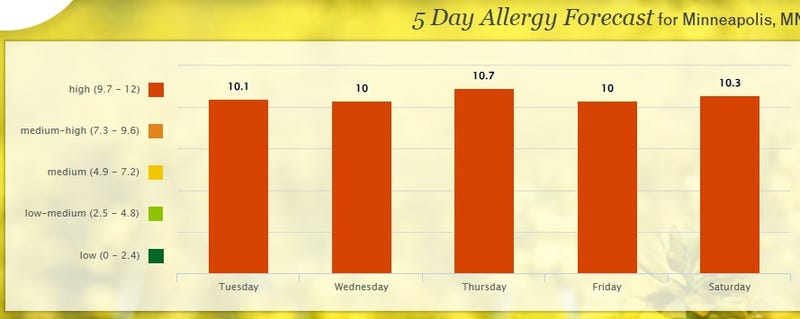
If your fall allergies are already acting up, you don't need to be told ragweed pollen counts are high these days. In fact, they're very high.
Dr. Gary Berman with Asthsma and Allergy Specialists in Minneapolis says most people can find relief with over-the-counter medications and nose sprays, but some may need to stay indoors.
"If that's the case, then they should be seen and get on a combination of medicines as well as possibly allergy shots," Berman says.
The pollen will be with us for about six weeks until the first frost, according to Berman.
For those that suffer with hayfever, it is typically State Fair time when the sniffling, sneezing, itchy eyes and the rest starts to kick in.
The start of ragweed pollen season this year is here with some gusto however. Pollen.com issues a daily and weekly forecast, and currently it has Minneapolis in the red - and that's bad. Pollen counts above 9.7 are considered high, and right now we are seeing counts above 10.
The dry conditions this week, coupled with some significant winds, is pushing pollen all over the place. Being outside can be tough for those that are allergic to it.
"Yeah, that's pretty common, and that's why this is the time of year, until we have our first frost, pollen counts are pretty high," Berman adds.
There are a few tips to help battle pollen counts this time of year.
1- Keep the windows closed and use your A/C as much as possible. Keep the pollen out of the house.
2- If you are outside for an extended period, shower and change clothes when you go inside. Pollen can literally stick to you.
3- Keep the dog out of the bedroom. Pets that are outside can carry pollen with them as well.
4- Skip the yardwork and gardening for now. Do not bring fresh flowers inside and avoid activities like cutting grass or working with garden compost, which can worsen your symptoms.

